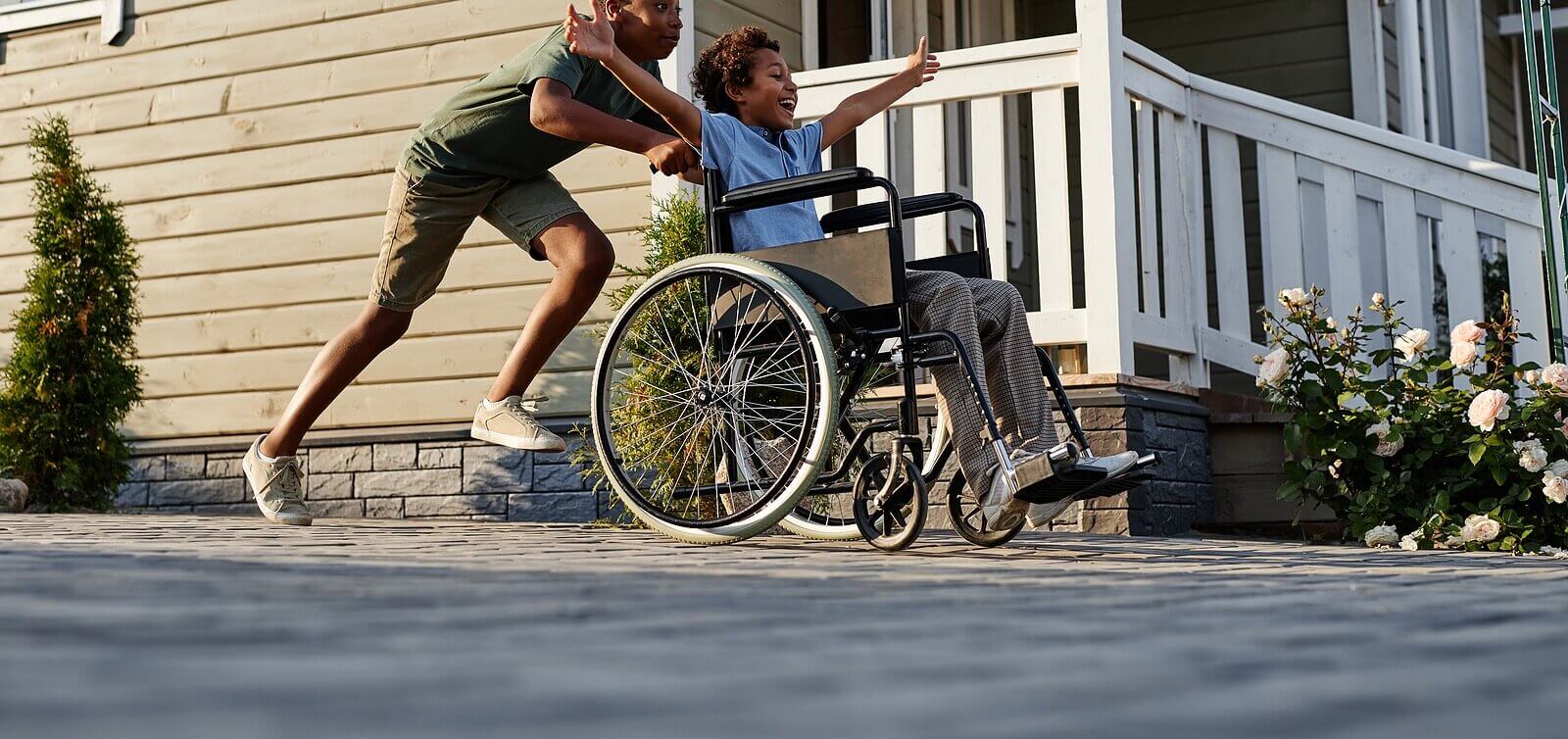As a parent, it is natural to feel a heightened sense of concern when your child is having problems. You want to be in the best position to make the right decision for your child, so you may be researching safe and effective treatments. Especially, when it comes to your child.
You may have been researching effective treatments and come across EMDR. Or, perhaps, a friend or family member has recommended it. Maybe even a therapist may have even suggested it. Whatever the case may be, you want to make sure this is the right decision for your child.
What is EMDR therapy? 
Eye Movement Desensitization and Reprocessing (EMDR) is a well-researched and evidence-based psychotherapy method that has been proven to help people reduce the emotional distress associated with traumatic memories. This method of therapy has also been shown as a treatment for anxiety, depression, panic disorder, phobias, PTSD, and other traumatic life experiences in individuals. It is a structured therapy that happens in phases.
It involves the client focusing on the traumatic memory while simultaneously experiencing bilateral visual, auditory, or tactile stimulation. This dual attention can include back-and-forth eye movements, tapping, or buzzing sounds that the client listens to while they focus on the memories. This is to help reduce the vividness and emotion associated with the memory and thus the impact on the child. With children, this can look like wand waving, hand tapping, or even tucking buzzies in their shoes.
How Long Has EMDR Been Around?
EMDR has been around since the 1980s when it was developed by Francine Shapiro, Ph.D., who noticed the connection between eye movement and a decline in upsetting memories. Since then, her work has grown from a hypothesis to a formal therapy process. This process has been researched and studied by mental health professionals and is now accepted as an evidence-based practice for psychological trauma.
Is EMDR Safe and Effective For Children?
EMDR is considered to be a safe and effective treatment for children and adolescents as long as it is done by a trained clinician. In 2013, the World Health Organization (WHO) recognized EMDR as an effective therapy for children and adolescents who have experienced traumatic events. It is also the therapy that has the highest recommendation for Children and Adolescents with PTSD from the International Society for Traumatic Stress Studies (ISTSS, 2018).
EMDR therapy can help children reduce the distress and emotional pain associated with traumatic memories or other life struggles. In 2012, a systematic review of research studies suggested that EMDR may have benefits for treating a single instance of trauma in children. It also suggested that EMDR could be used for treatment for multiple or repeated trauma, such as abuse.
Research has shown that the positive results of EMDR are similar to those seen with other therapies, such as cognitive-behavioral therapy (CBT). EMDR works well in conjunction with therapies such as play therapy, and sand tray therapy. Or, it can be an alternative for children who may struggle with traditional forms of therapy or who may respond better to an alternative.
It’s important that your child or teen’s therapist is trained in working with children and teens. They will know what works best for children and teens. The therapist can better tailor their therapeutic approach to meet the needs of your child. This way your child is receiving the appropriate treatment, adjustments, and modifications needed for their age, stage of development, and emotional needs. At Brave Minds Psychological Services, all of our EMDR therapists are also child or teen therapists. This way you can be sure that your child is receiving comprehensive and appropriate care.
How Can it Help My Child?
EMDR is not solely for those facing traumatic experiences. But can be a valuable tool in helping children with various struggles. It can help your child process difficult emotions and experiences that children may not be able to verbalize or express in words.
EMDR can help children process and heal from issues that may include:
- Separation Anxiety
- Impulsivity and Tantrums
- Grief and Loss
- Divorce or Family Separation
- New Siblings or Family Members
- Phobias, Anxiety, or Nightmares
- Depression or Low Self-Esteem
- Natural Disasters and the Pandemic
- Trauma and Abuse
EMDR can help your child replace the pain, fear, or negative thoughts surrounding these events or experiences with positive beliefs and feelings. It can help your child regulate their emotions and cope better with stressful situations. Since these behaviors come from a place of anxiety, fear, or trauma, EMDR helps your child process these experiences in a healthier way. It also helps to create lasting changes.
For example, if your child is struggling with fear of the dark, EMDR therapy can help them process those fears and replace their negative beliefs about the dark with positive, empowering ones. This can help them feel less anxious in the dark and gain confidence.
For teens, it can help them to replace outdated coping skills they may be relying on since their prefrontal cortex is not fully developed. EMDR can help teens learn healthy coping skills and build the ability to regulate their emotions. For example, a teen might be struggling with low self-esteem and the perfectionism that often accompanies it. EMDR can help them process these negative beliefs and replace them with healthier, more positive ones.
How is it Done With Children?
When completed with children, EMDR is modified to the developmental level of the child. It can involve the use of pictures or stories instead of words. It can also be adapted to a child’s particular needs and resources. An experienced clinician can help create a safe environment that allows the child to explore their traumatic memories in a supportive and non-threatening way.
Since EMDR does not require individuals to talk about the traumatic experience in detail, it can be a helpful alternative to traditional talk therapy. EMDR focuses on changing the emotions surrounding the event. This allows the child to regain control of their emotions and memories.
EMDR is a safe and effective treatment for children that can help them process and heal from their traumatic experiences.
Also, some children may not feel comfortable talking or may not be able to verbalize their feelings. EMDR can provide a way for them to process their trauma in a meaningful and safe way. An experienced therapist can help guide a child through the process, ensuring their safety and providing support.
What Can I Expect?
At Brave Minds Psychological Services, we very much believe in parental involvement in therapy. Supporting your child’s healing is a team approach and, when it comes to EMDR for your child or EMDR for your teen, parents are an important part of the process. There are phases in EMDR in which parents are heavily involved, and phases in which parents are more of a supportive role.
Phases of EMDR
In the first phase, you as a parent are an important part of fully understanding what has happened and what appears to be the impact on your child. The therapist will also speak with your child or teen individually to get their perspective. Many times children will attempt to protect you as their parents from seeing their pain or struggles. So it is important to be a part of the process. The therapist will then help your child identify what their struggles are and needs are.
During the second phase of EMDR, the therapist will work with your child to develop coping skills and internal resources to deal with their distress. This is where parents will come into play, as you provide a supportive environment outside of the therapy session. Not only for your child to practice the skills they’ve learned, but to help them stay motivated and on track.
Children will need support and understanding from their parents and guardians. which can make all the difference in their healing. Parents help support this process at home by practicing using their resources. They can also protect their children from situations that might impede the therapeutic process.
When it Comes Time For EMDR and the Reprocessing Phase, Parents May or May Not Be Present.
It is really dependent on what the child wants and needs AND what’s best for the family. This phase is about processing the traumatic memories in a way that allows your child to heal from them. The bilateral stimulation acts as a catalyst to jump-start the brain’s natural healing processes. Much like the way your body heals itself, your brain actively works to heal emotional wounds.
But like the body, it can sometimes get stuck and is needing additional help. Your child’s therapist will target specific memories and negative beliefs. You will discuss this with your therapist prior to beginning this phase. During this phase, your child may demonstrate an increase in emotionality. However, the coping skills and internal resources developed in phase 2 should help them and you manage their feelings. The final stages work to consolidate empowering beliefs and confirm the release of stress that can be trapped in the body.
Interested in Working with an EMDR Therapist in Scotch Plains or Branchburg, NJ?
At Brave Minds Psychological Services, our experienced therapists are trained in EMDR and specialize in helping children heal from their traumatic experiences. We understand you want the best for your child and we are here to help. We will work with you and your child to create a safe and supportive environment for them to process their traumatic memories. Together, we can help your child heal and move forward with their life. It all starts with these three steps:
- Contact us to get started at Brave Minds Psychological Services
- Meet with an EMDR Therapist
- Start supporting your child’s healing process!
Other Services Offered in Scotch Plains and Branchburg, NJ
We are happy to offer a variety of services at Brave Minds Psychological Services. in addition to EMDR Therapy. For adults, we provide couples counseling, postpartum counseling, and birth trauma therapy. Our team also offers counseling for anxiety, & trauma. In addition, our services extend beyond adults. Our caring counselors provide mental health services for teens and children. This is why we offer treatment for teen anxiety, social phobia in teens, child sexual abuse, child anxiety, food allergies, and more. Our therapists also offer several options for group therapy. Our services are offered in person at our Scotch Plains and Branchburg, NJ offices and through online therapy in New Jersey.





